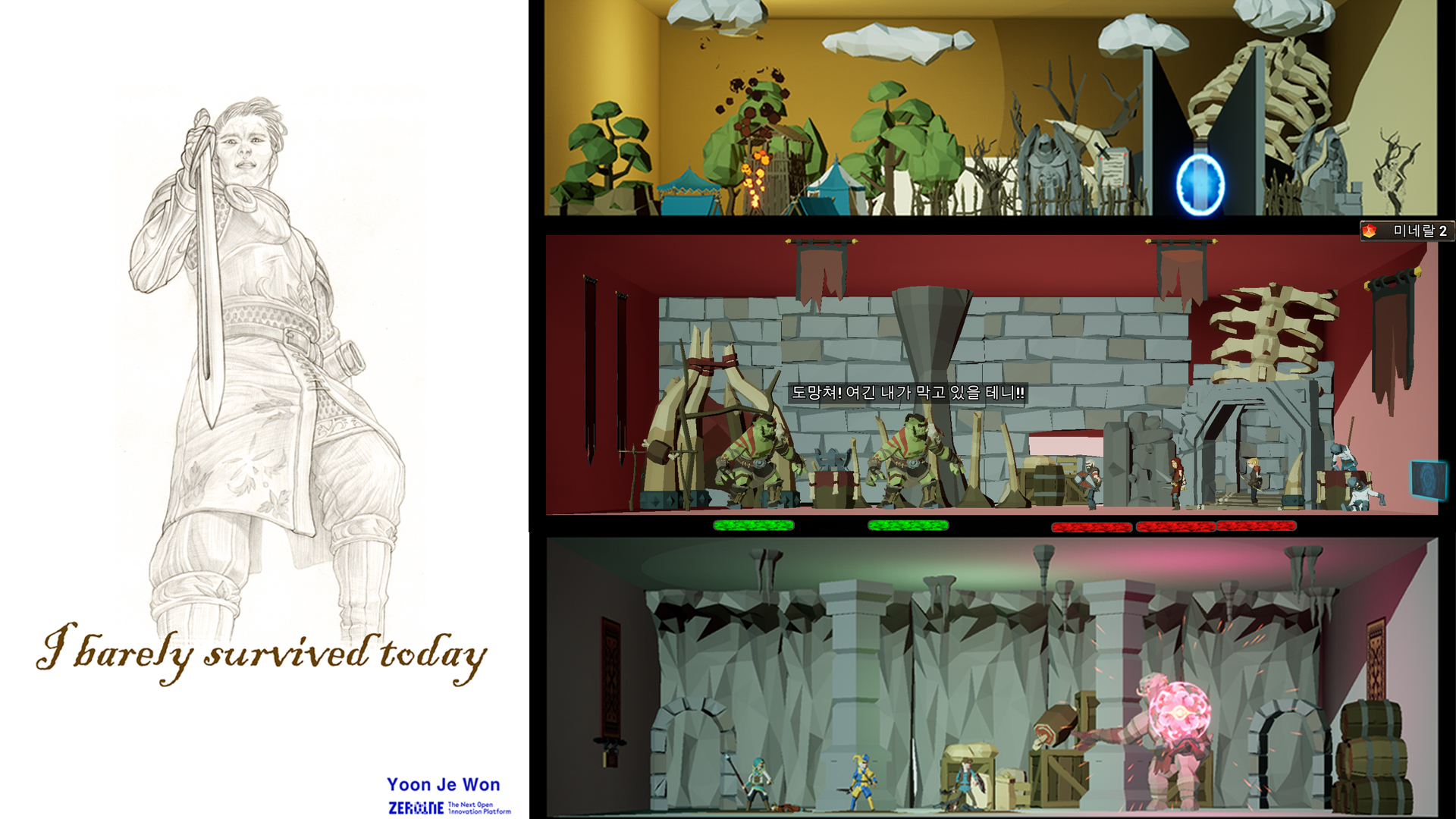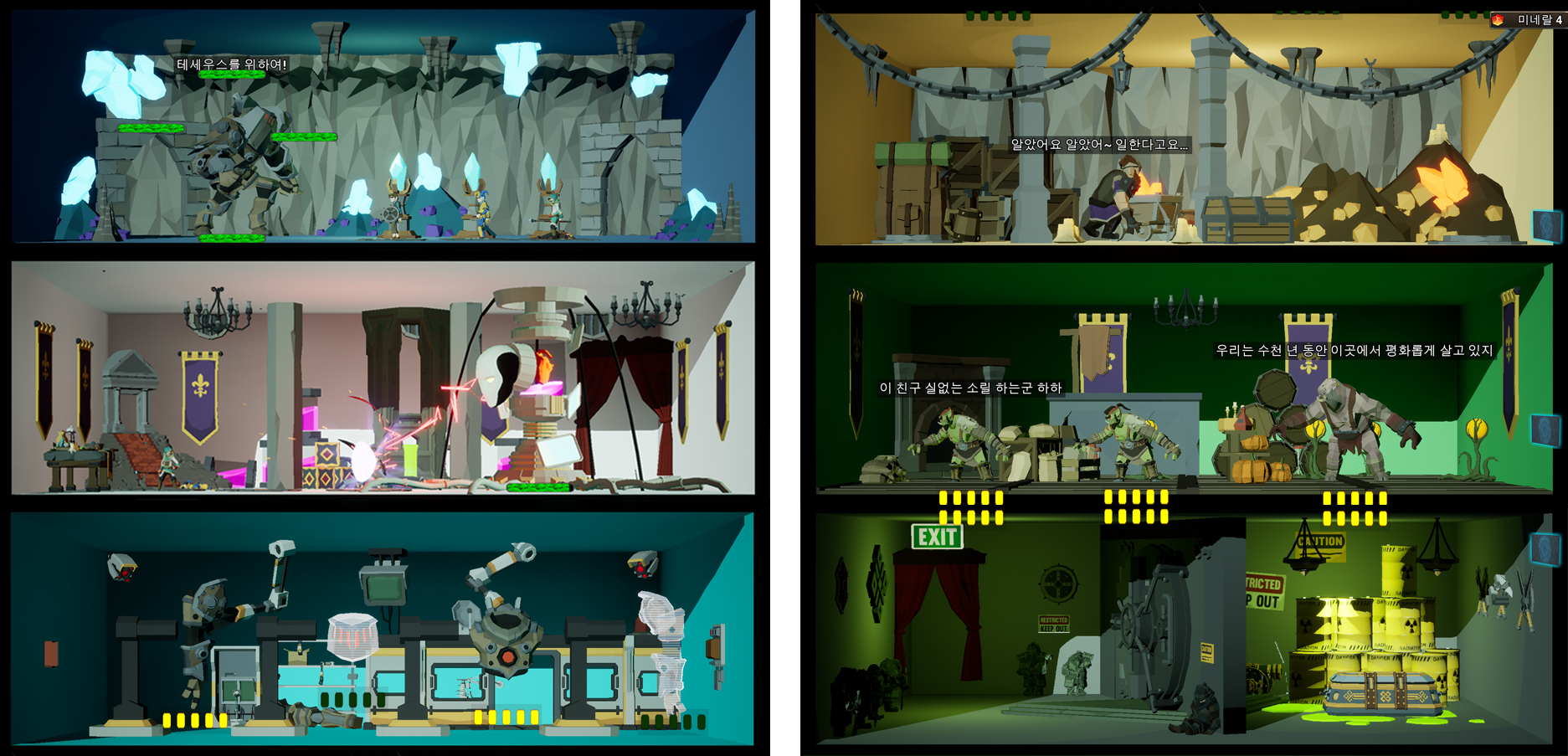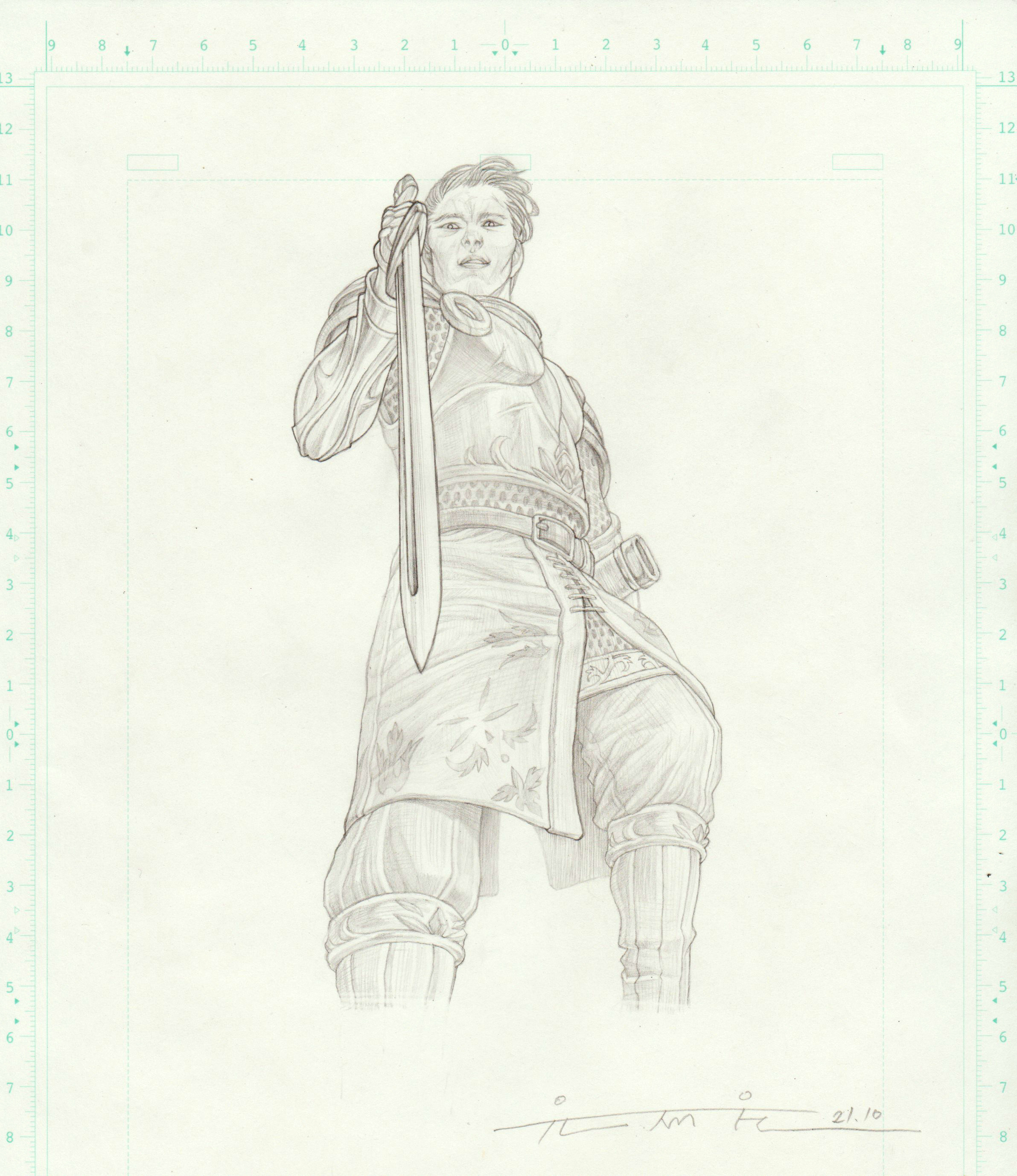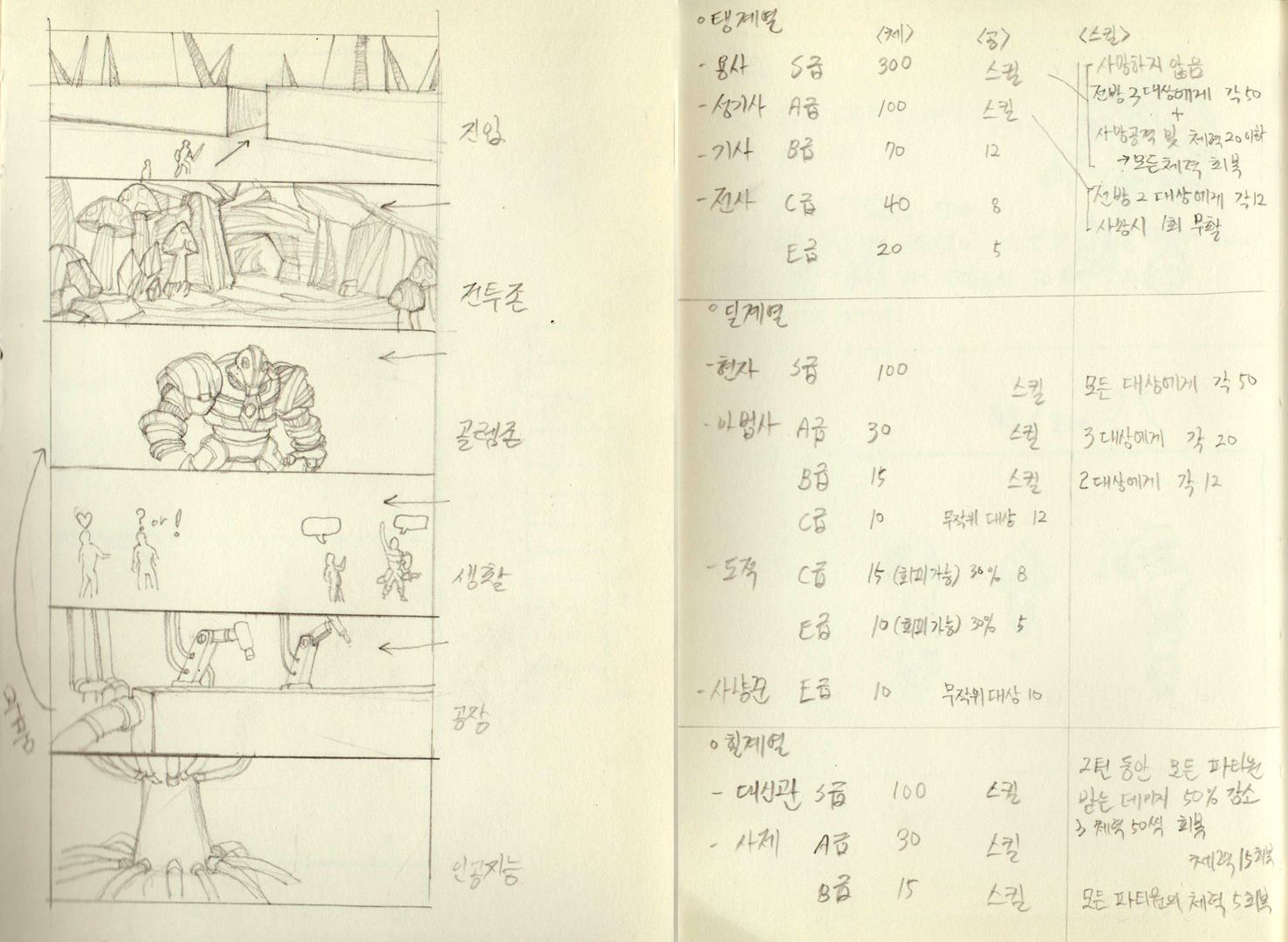The convenience brought by technology has made human beings progress. However, the progress does not always produce promising results. The project of an artist JeWon Yoon, <I Barely Survived>, warns through games. Game columnist KyungHyuk Lee says that the dizzying thrill from adventure can come as a threat of reality.
Old stories to tell when the seal was broken
One of the earliest Chinese novels <Water Margin> begins with the scene of an arrogant Marshal Hong breaking the seal of the pandemonium (the cave where the devil was hiding) which is located deep inside the temple. The 108 spirits tied up by the ancient masters are released into the world by a person full of curiosity and arrogance, causing trouble in the future.
Pandora’s box, which appears in Greek mythology, delivers long-lasting lessons about the fundamental human desires of curiosity and challenge. We are always curious about the unknown but solving our curiosity does not always end up with positive results.
The Basic Structure of Dungeon Defense
<I Barely Survived> is kind of the Dungeon Defense in terms of game genre. Dungeon Defense, such as <Dungeon Keeper> and <Evil Genius>, is a genre that reverses the fact that existing role-playing games are generalizing the process of a warrior’s ‘adventure’ toward a Dungeon.
In Dungeon Defense, the player takes on the role of the warrior’s enemy instead of the warrior. The warriors who attack in no time are annoying intruders from the Dungeon master’s point of view even though the master has done nothing wrong or evil. The genre of Dungeon Defense that twists the clichés reads the warrior’s challenge from a completely different perspective as the invasion of the louts, and created a new antithesis against classic role-playing through this.
<I Barely Survived> is faithful to the basic rules of Dungeon Defense. The player is in charge of the huge underground Dungeon and must play to prevent the ‘warriors’ coming from outside. It is a very simple interface, but the eyes, hands, and head cannot be as relaxed as you think because the battle with the ‘warriors’ rushing into you, and securing the production and resources on each floor are conducted in real-time.
At the end of the Dungeon, a danger awaits, not a treasure
Based on the genre’s basic structure, <I Barely Survived> attempts one more twist. The world in the game is the so-called post-apocalyptic world, where modern humans have already gone extinct once and then rebuilt. The new humanity goes on an adventure longing for the treasures in the Dungeon built deep underground by previous civilizations. However, what was hidden underground was nuclear waste that should never come out to the ground, and if the player fails to defend the Dungeon, the nuclear waste comes out again into the world and the humanity faces the extinction again. This is the structure of the game.
The situation, in which the object protected by the Dungeon is not a treasure, overturns the fundamentals of the concept of guarding treasure and searching, which has long been the premise of role-playing games. The situation of guarding what should not be out in the world gives the plays a new justification turning the player into a guardian of justice and the ‘warrior’ into a greedy villain.
This justification is not just a simple reversal. This is because a new concept of protection appears today, unlike the past which considered protecting something as a protection for private property to fully possess certain goods from others. A typical example is a nuclear waste disposal facility in Onkalo, Finland.
The Onkalo nuclear fuel repository designed to store high-level radioactive waste for nearly 100,000 years until it is safe became famous for its design to prevent future human intrusions during periods spanning geological timescales. In order to protect the environment from future generations, who may have different languages and cultures, The Onkalo presented a unique imaginative inspiration towards the future by mobilizing non-verbal means to devise a way to prevent future generations from touching this dangerous object.
The reversal of guarding the Dungeon shown in <I Barely Survived> is in line with Onkalo’s ideology. The game is located in a structure that aims at the public interest of mankind, not the private interest of the constructor and that must protect something that triggers destruction the moment it is opened, rather than gaining profits. This gives the player the right to guard the Dungeon within the game, and at the same time suggests the advent of new questions of a new situation facing mankind today and how to protect the waste that must not be approached.
Seal, a problem that has crossed over from the past to the future
This question is new, but not quite unfamiliar at the same time. This is because we use the word ‘seal’ for this concept. Therefore, the Defense created by <I Barely Survived> is not guarding the Dungeon, but ‘sealing’. <Water Margin> and Pandora’s Box were stories about sealing something that should not be approached, and <I Barely Survived> replaces Dungeon Defense with the problem of seal and brings out the seal as an old future again.
The development of mankind has always been achieved by approaching the unknown world. Mankind, who has pioneered unknown routes and challenged the new realm of space, has traveled towards the secrets of the hidden world without hesitation. However, the advent of some things represented by nuclear wastes makes us realize that approaching towards something that is restricted for access does not always lead to a bright future. <I Barely Survived> asks the player wondering whether nuclear wastes sealed deep underground, the ecosystem of a gigantic subglacial lake preserved under Antarctica, and an adventure to unreached places such as the methane lake beneath bedrock on the planet far away in the Solar System will always be only light for mankind. Our progress could be led to breaking the seal, couldn’t it?
JeWon Yoon (New Media Artist)
JeWon Yoon has been working on his projects from the perspective of game culture by combining theory and creative activities based on his in-depth experiences and activities in games, such as game rankers and community users. Yoon presents today’s multi-layered situations moving back and forth between the digital and physical worlds, and the virtual and the real worlds, closer and unfamiliar through rethinking and exploring the actions of ‘producing’ and ‘playing’ games at the same time.
KyungHyuk Lee (Game columnist)
Lee is a game researcher who studies the effects of digital games on modern society and humans as a medium, and a game columnist who introduces the research results to the public. Lee is the editor of ‘Game Generation’, the game culture webzine and the head of ‘Dragon Lab’, a game research institute. His published books include <Game, Another Window to see the World (2016)> and <Theory of Game (2019, co-author)>.





